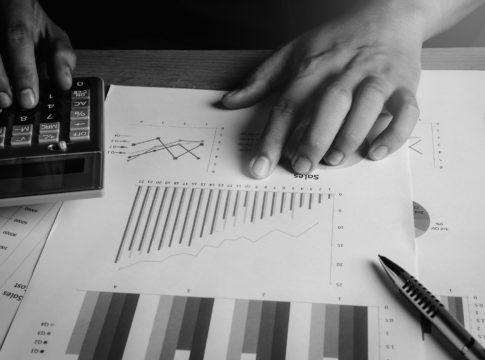Egypt has put its dark days behind it, thanks to an economic reform program that has restored confidence in North Africa’s largest economy.
The economic reform program, begun in 2016 and backed by a $12 billion loan from the IMF, includes the liberalization of the exchange rate, the rationalization of energy subsidies, and increased social protections for the poor. Since its implementation, the country’s financial health has improved considerably, returning for the most part to pre-revolution levels.
In the last year alone, the country topped all other countries in terms of reforms carried out, with the World Bank Group’s Doing Business 2019: Training for Reform report highlighting that the business reforms will help create jobs, attract investment and make the economy more competitive.
“The foreign currency flotation definitely gives Egypt an edge in terms of pricing, simply because the cost of labor, land, and so many other things that an investor will be looking for is definitely going to be much cheaper than other markets. We also have the legislative reforms that have taken place, with the new investment law and its executive regulations, and the new bankruptcy law,” says Mervat Soltan, chairperson of the Export Development Bank of Egypt.
“All the legislative changes that are happening to also create a much more stable ecosystem. The whole ecosystem is working to provide the investor a much better ecosystem in order to operate in.”
After a meeting with President Abdelfatah El-Sisi in New York in September, the IMF’s managing director Christine Lagarde underscored the importance of the country’s structural reforms to achieve more sustainable growth. “Egypt’s economy is showing strong signs of recovery, and its economic growth is among the highest in the Middle East,” she said.
Though many challenges remain, Egypt’s investment climate improved markedly in 2017, prompting an increase in foreign direct investment of 13 percent year over year, according to the Central Bank of Egypt, whose governor, Tarek Amer, was named “best Arab central bank governor” in 2017 by the Union of Arab Banks and “central bank governor of the year” for the Middle East and North Africa by the IMF and World Bank as a result of his efforts to put the Egyptian economy on a sustainable path and restore confidence among foreign investors.
Mr. Amer’s commitment to implementing a prudent monetary policy, including clear inflation targets, timely communication with markets and the establishment of macro-prudential controls, has been welcomed by investors, with ratings agency Fitch revising the country’s outlook to ‘positive’ from ‘stable’ earlier this year.
“The government made significant progress with its reform program in 2017 and remains on track with the $12 billion three-year Extended Fund Facility signed with the IMF in November 2016,” stated Fitch.
“Fiscal consolidation is proceeding, although it will require a multi-year effort to reverse the increase in general government debt/GDP witnessed since the Arab Spring uprisings. The Central Bank of Egypt’s exchange rate reform has proved a turning point for the economy and Egypt’s external finances; and macroeconomic stability has started to improve following an inflationary spike.”
Tarek Fayed, chairman and CEO of Banque Du Caire, Egypt’s third-largest state-owned bank, takes a similarly positive view. “The government and the central bank reforms that have been undertaken during the last couple of years in terms of liberalization of the foreign exchange regime as well as fiscal consolidation had a very positive impact on the economy,” he says.
The economic reform program has shown the international investment community that the Egyptian government is not afraid to adopt unpopular measures in order to stabilize the economy, with many in the private sector optimistic about the future. “Egypt is facing a very drastic improvement, and people are getting to understand that It is important to be patient in order to see the results,” says Amr Fouad Kamal, Chairman of Egyptian Arab Land Bank.
While some measures have been difficult for Egyptians, such as cuts to fuel subsidies, Elisa Parisi-Capone, lead sovereign analyst for Egypt at Moody’s, says: “in our view the brightening economic and employment outlook in Egypt provides a better basis for acceptance of the new reforms by highlighting the economic benefits of successful reform implementation after an inevitable adjustment phase.”
For finance minister Dr. Mohamed Maait, the focus now is on attracting investment through achieving economic stability in the taxation and customs policies, and with government investment up 85 percent and tax collection up by 39.8 percent in the first quarter of the fiscal year, the minister is confident of success. “These positive results for the first quarter of the current fiscal year affirm Egypt’s ability to achieve its financial targets for the budget for the current fiscal year,” the minister said.
This fiscal year, which ends June 2019, private investment is expected to contribute between 62 and 65 percent of economic growth, compared with 60 percent last fiscal year and just 48 percent in the previous year. With the economy back on course and the reforms having done their job, investors can now comfortably consider a plethora of options in the country in everything from roads, rail and logistics to agriculture, energy and desalination plants.


